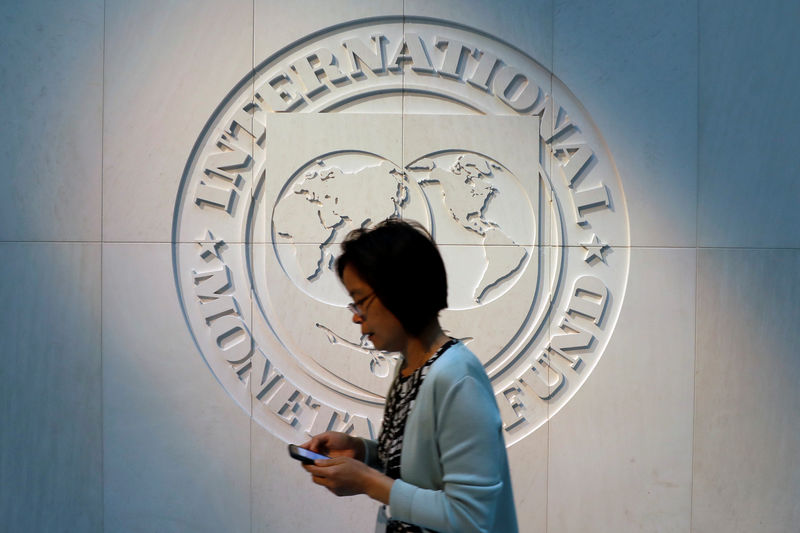(Bloomberg) -- Explore what’s moving the global economy in the new season of the Stephanomics podcast. Subscribe via Pocket Cast or iTunes.
The International Monetary Fund warned Europe to prepare emergency plans for an economic slump, as risks to the region’s outlook spread and monetary policy has all but exhausted its arsenal.
“Given elevated downside risks, contingency plans should be at the ready for implementation in case these risks materialize, not least because the scope for effective monetary policy action has diminished,” the IMF said in its Regional Economic Outlook for Europe. “A synchronized fiscal response” may be necessary, the fund said in the report, highlighting the dangers from trade protectionism, a chaotic Brexit and geopolitics.
The stark warning comes after the latest economic data showed that the euro-area economy is proving more resilient than anticipated, driven by robust expansion in countries such as France. Still, Germany probably went into a technical recession during the last quarter, while the labor market in the continent’s biggest economy started to deteriorate.
And there could more trouble ahead.
If the U.K. leaves the European Union in January without an orderly withdrawal agreement, the country’s economic output would be 3.5% lower in two years, according to the IMF’s forecast. The EU economy would be 0.5% smaller in that scenario.
Adding to Brexit uncertainty, “the weakness in trade and manufacturing could spread to other sectors -- notably services -- faster and to a greater extent than currently envisaged,” the IMF said. The report also warns about elevated asset prices in several countries -- including in real estate -- which are making banks more vulnerable to shocks, such as abrupt declines in risk appetite and tightening of financial conditions.
The IMF named Germany and the Netherlands among the countries which should loosen their purse strings to spur growth. Such “measured fiscal expansion” could have positive spillover effects, halting the slowdown, while at the same time reducing external imbalances.
Even countries with high deficits and debt should consider a “temporarily slower pace of fiscal consolidation or a temporary expansion” if negative scenarios materialize, according to the fund. Meanwhile, governments should consider “debt management options” to take advantage of ultra-low yields to improve their financing requirements in the years ahead.
Despite the side-effects of ultra loose monetary policy on asset prices, the IMF recommends that central banks maintain their accommodative stance to stem the slowdown. The report is the latest to hand ammunition to the European Central Bank, which is battling a persistent backlash against its renewed stimulus measures.
